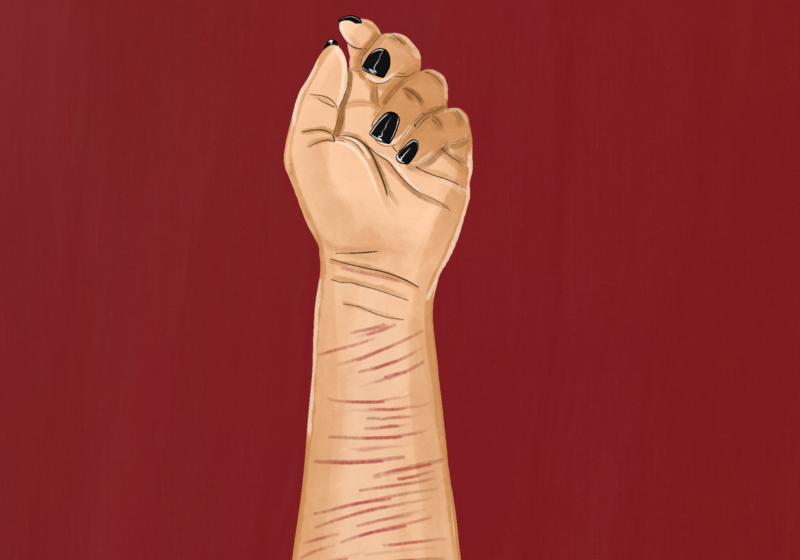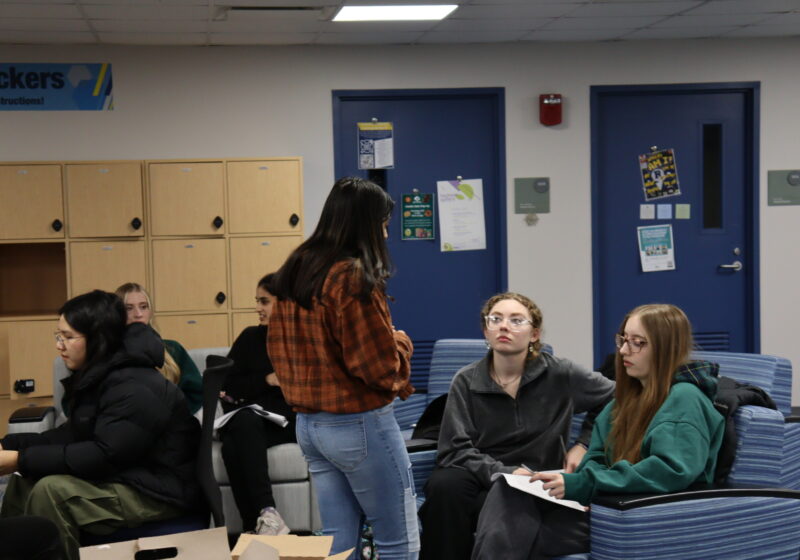This summer, I spent a large chunk of time on TikTok. One of my favorite audios was the nightcore rendition of “A Match into Water” by Pierce the Veil. The song’s first two lines: “I kiss the scars on your skin/I still think you’re beautiful and I don’t ever want to lose my best friend” had become a meme on the app. TikTok users were using the audio to make fun of their melodramatic tweenagehood.
However, 2022 is not the first time that this song has gone viral. In the mid 2010s, during the peak of Tumblr culture, anyone who engaged with any form of emo media was bound to come across aesthetic transcriptions of these lyrics. In 2014, the virality of the song was based on an authentic connection to the song. It was an earnest and sincere connection. There was no veneer of irony.
“Emo” teenagers on Tumblr heralded this song as an ode to self-harm. Some found comfort in the song, but others allowed its lyrics to feed into their own romanticization of self-harm. Some teenagers expressed how the thought of someone kissing their self-harm scars was unbearably romantic to them and revealed how that thought made them more likely to self-harm. Cutting had become idealized.
“A Match into Water” is not a song about self-harm. Instead, it details vocalist Vic Fuentes’ anguish after learning that his partner was diagnosed with breast cancer. The “scars” on her skin refer to scars cancer patients incur from their repeated surgeries, not self-harm scars. However, it was still easily misinterpreted and contributed to emo self-harm culture. This eagerness to find beauty and romance in self-harm speaks to the general culture of the Tumblr era “emo” teenagers: a culture in which mental illness had become glorified, and its tragic consequences idealized.
I was a Tumblr tween. And unfortunately, I was one of the many, many children who fell victim to the aestheticization of self-harm. I would see black-and-white photos of people’s wrists covered in scars with lyrics plastered over them and I would find it beautiful. When songs would mention cutting, I would not be filled with sadness but with a strange awe. To me, self-harm was gorgeously tragic. I found it romantic.
So I did it. And an incredibly dangerous habit formed. A habit that took me five years to overcome. A habit that has hurt my family and hurt my friends and has left me deeply, deeply ashamed of myself.
It is terrifying how romantic cutting seemed in my youth. It was not a severe, obsessive addiction but something beautiful and tragic. Love was someone kissing your scars and begging you to stop. I should not have been 13-years old and hurting myself nightly because the Internet told me that this was the most beautiful way to deal with my pain.
I see this glorification of mental illness and its ensuing anguish occurring again on TikTok. And it makes me incredibly concerned. I worry for 13-year olds on the Internet now. Their brains are so malleable and social media is so effective. All I can do now is hope that kids now are smarter. I do not want anyone entering into the cycle that I did.





